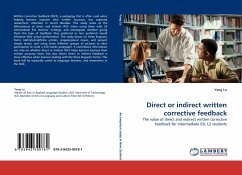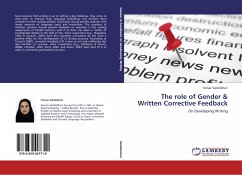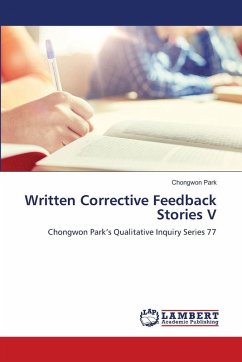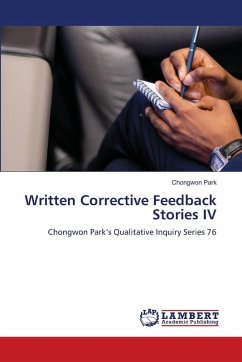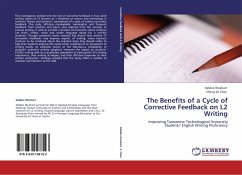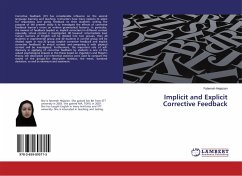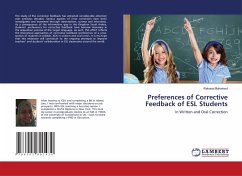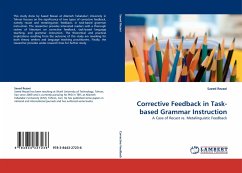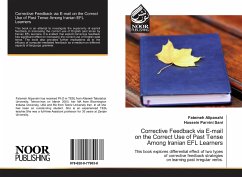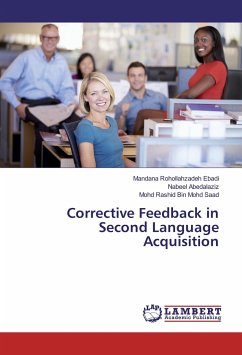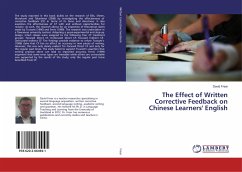
The Effect of Written Corrective Feedback on Chinese Learners' English
Versandkostenfrei!
Versandfertig in 1-2 Wochen
46,99 €
inkl. MwSt.

PAYBACK Punkte
23 °P sammeln!
The study reported in this book builds on the research of Ellis, Sheen, Murakami and Takashima (2008) by investigating the effectiveness of corrective feedback (CF) in terms of its focus and directness. It also examines the effectiveness of CF with and without opportunities for revision. As such, the research allows for an inspection of theoretical claims made by Truscott (1996) and Ferris (1999). The research was undertaken in a Taiwanese university context. Adopting a quasi-experimental and step-up design, intact classes were assigned to the following four CF treatment groups: Focused Direct...
The study reported in this book builds on the research of Ellis, Sheen, Murakami and Takashima (2008) by investigating the effectiveness of corrective feedback (CF) in terms of its focus and directness. It also examines the effectiveness of CF with and without opportunities for revision. As such, the research allows for an inspection of theoretical claims made by Truscott (1996) and Ferris (1999). The research was undertaken in a Taiwanese university context. Adopting a quasi-experimental and step-up design, intact classes were assigned to the following four CF treatment groups: Focused Direct CF, Unfocused Direct CF, Focused Indirect CF, Unfocused Indirect CF. The findings provide evidence to refute Truscott's (1996) claim that CF has no effect on accuracy in new pieces of writing. However, this was only clearly evident for Focused Direct CF and only for the regular past tense. The study failed to support Truscott's assertion that writing practice alone can lead to improved accuracy. Ferris' (1999) argument that some error types are treatable while others are untreatable was supported by the results of the study; only the regular past tense benefited from CF.



